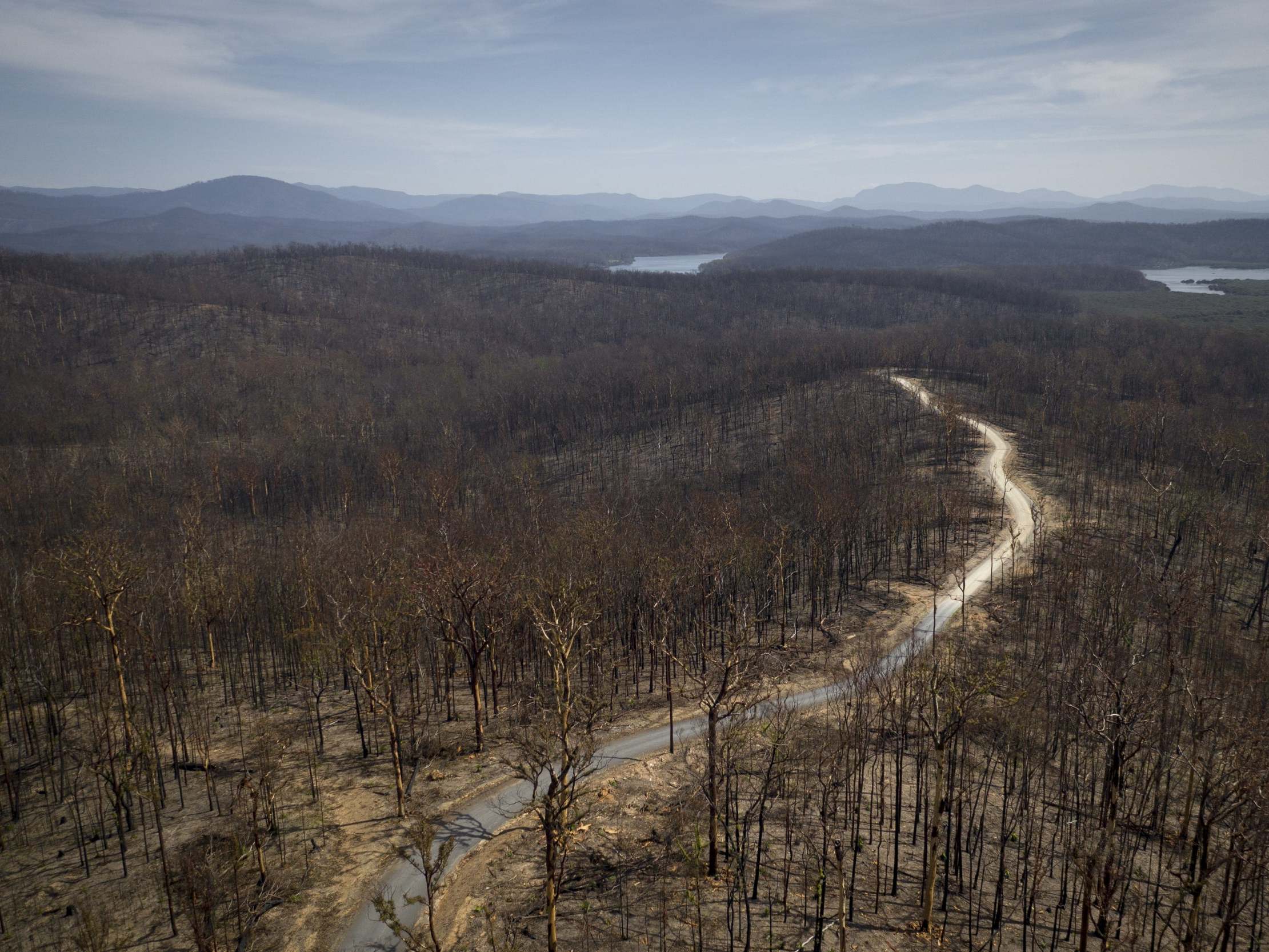Australia region celebrates first time without active wildfire for 240 days
'For the first time since early July 2019, there is currently no active bush or grass fires in New South Wales,' says Rural Fire Service

Emergency authorities in the Australian state of New South Wales (NSW) have reported no active wildfires for the first time in more than 240 days.
The NSW Rural Fire Service tweeted on Monday evening: “For the first time since early July 2019, there is currently no active bush or grass fires in New South Wales.
“That’s more than 240 days of fire activity for the state.”
The south eastern state was the worst-hit region since an extraordinary fire season began in June 2019.
Raging wildfires ravaged more than five million hectares (around 2.47 acres) of land in New South Wales and destroyed more than 2,000 properties, forcing thousands of people to evacuate their homes.
Australia fires: Dust storm and flooding that followed
Show all 20A total of 34 people died throughout the country, along with an estimated one billion animals – researchers believe 800 million animals perished in NSW alone.
Relief arrived in the form of heavy rain, which helped contain the out-of-control blazes and gave firefighters and residents a chance to regroup and rebuild their communities.
On 13 February, the NSW RFS announced all fires were contained for the first time after a “very traumatic, exhausting and anxious bush fire season so far”.
Fire season is a regular occurrence during hot, dry Australian summers but the most recent wildfires were exacerbated by months of extremely high temperatures and one of the worst droughts in the country on record.
Climate change also drove the fires out of control and has resulted in summers twice as long as Australia’s winters, according to new weather data analysis.
Research by the Australia Institute used data from the Bureau of Meteorology to track changes in daily temperatures and found Australian summers have extended by over a month.
The findings reveal that longer summers are directly caused by global warming and could result in “significant impacts” on tourism, construction, mining, and agriculture industries.
Richie Merzian, Climate and Energy Program Director at the Australia Institute, said: “Our findings are not a projection of what we may see in the future. It’s happening right now.
“Summer has grown longer even in recent years, with the last five years facing summers twice as long as their winters.
“Places such as Port Macquarie in NSW, which suffered devastating fires early in the fire season, are now experiencing seven more weeks of summer compared with the 1950s and 60s.
“According to numerous modelling exercises, including those commissioned by the federal government, it is in Australia’s national interest and economic interest to put in place a strong policy to reduce emissions. The Australian government’s current policies only serve to further fuel the climate crisis,” added Mr Merzian.
Subscribe to Independent Premium to bookmark this article
Want to bookmark your favourite articles and stories to read or reference later? Start your Independent Premium subscription today.

Join our commenting forum
Join thought-provoking conversations, follow other Independent readers and see their replies